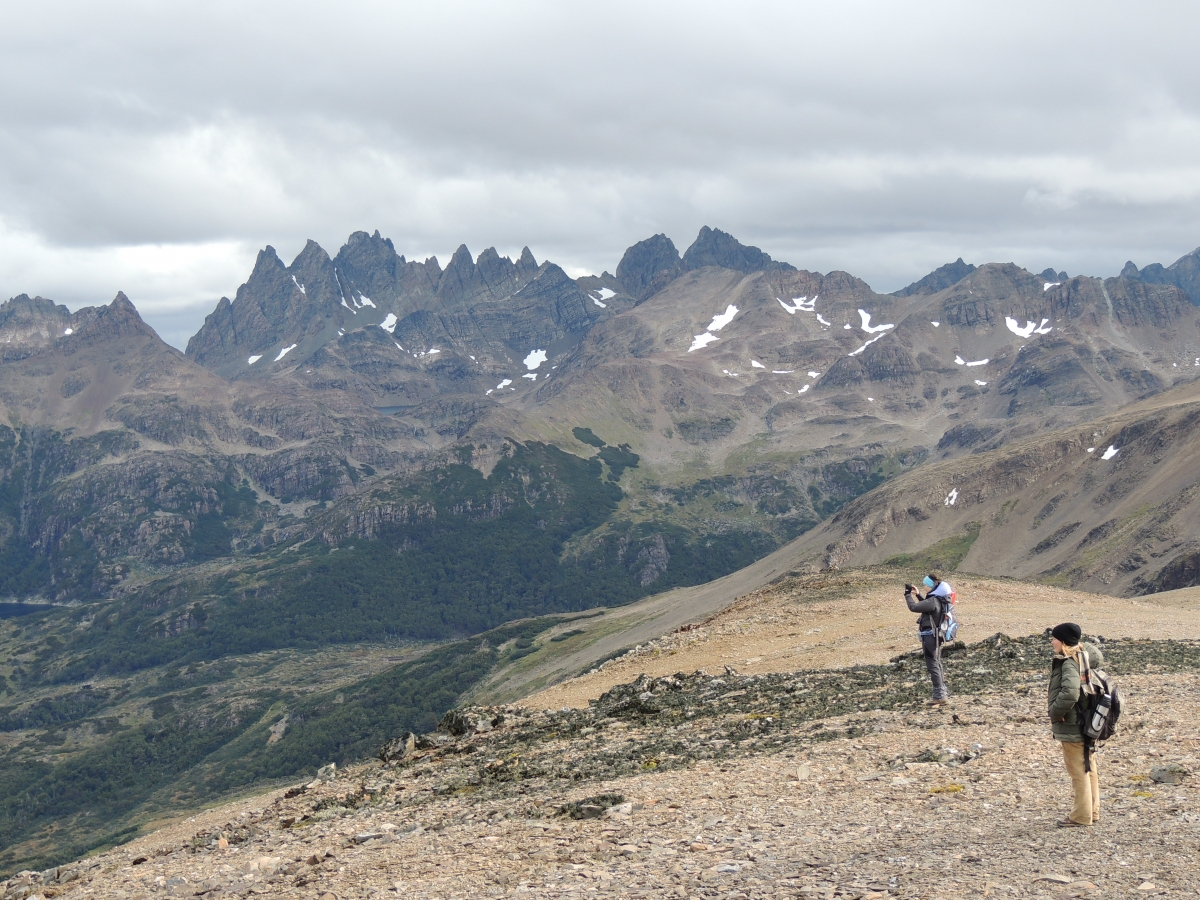
NSF International Research Experiences for Students - 2021 - 2024
"Integrating ecological sciences and environmental philosophy for biocultural conservation in the temperate and sub-antarctic Ecoregions of southern South America"
Investigators: Andrew Gregory, James Kennedy, Ricardo Rozzi
Cross-cutting interdisciplinary research and integration of ecology and biocultural conservation: Climate change and disease ecology at the southern end of the Americas

Conservation of biological and cultural diversity requires addressing social and ecological dimensions of environmental problems to stimulate integration of scientific research, policy development, and conservation strategies. With a novel biocultural conservation approach integrating ecological sciences, arts and environmental philosophy, students will participate in theoretical and field-based research conducted in the southernmost temperate region of southwestern South America in UNESCO's Cape Horn Biosphere Reserve (CHBR), Chile. This National Science Foundation (NSF) funded International Research Experience for Students (IRES) was awarded to the University of North Texas (UNT) Sub-Antarctic Biocultural Conservation Program (SCBP) to provide international research experiences in the Omora Ethnobotanical Park (OEP) and the CHBR for 18 students over three years. The SBCP, is jointly coordinated by the UNT in the US, and the Universidad de Magallanes (UMAG), and the Millennium Institute of Ecology and Biodiversity (IEB), and the OEP in Chile. Mentored by Chilean and U.S. researchers, students will actively engage in cross-cutting research in the context of global climate change integrating bryophyte and bird ecology, impact of invasive species, and the effects of water and air quality on aquatic invertebrates along altitudinal gradients.
UNT has a world renowned interdisciplinary program that integrates environmental sciences, philosophy and the arts. IEB is a prominent Latin American research institution that includes six universities and three long-term ecological research sites (LTER). UMAG, Chile's southernmost university and one of the top ranked, played a key role in the creation of the CHBR, and has conducted long-term ecological research at OEP for over two decades. Through interdisciplinary research activities conducted by an international team of scholars with complementary strengths, in pristine natural and unique cultural environments, U.S. students will acquire critical skills to address pressing regional conservation issues triggered by global socio-environmental change in an international setting. The program will focus on biodiversity assessments; ecological processes; threats to biodiversity conservation; socio-cultural perspectives on biodiversity; conservation and watershed protection policies, disease ecology, birds and insect vectors, habitat structure, and climate change; and practices of formal education related to biocultural diversity in southern Chile. The objective of the program is to familiarize students with decision-making processes, engage them in regional educational programs focused on social and ecological well-being. Selected students will be exposed to new interdisciplinary methods and approaches for a more holistic understanding of the links between social and ecological systems.
Online application